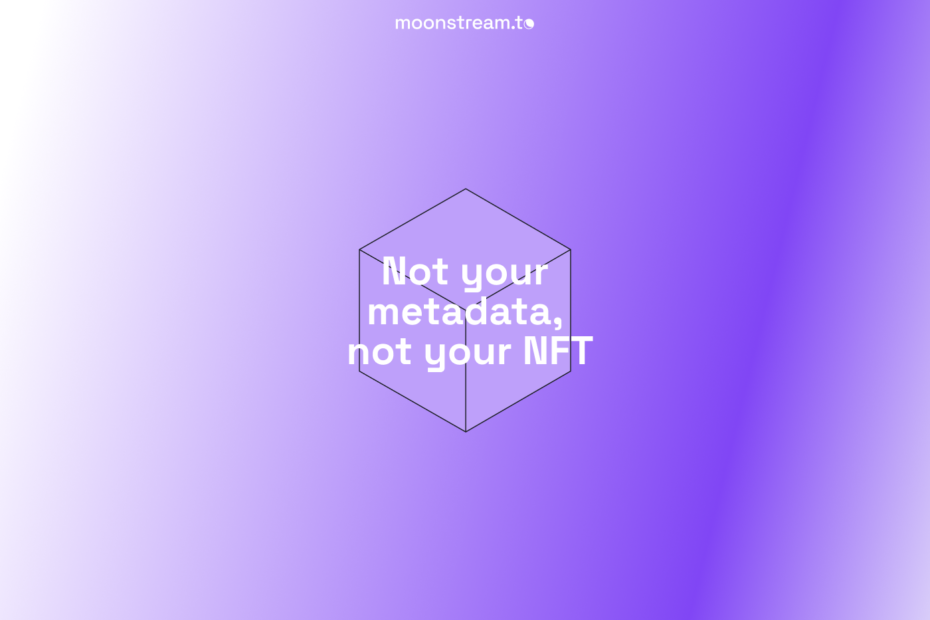Truth Labs, creators of several popular NFT collections, recently made a controversial decision to change all of their NFTs’ metadata, including inside users’ wallets. They changed all images for their NFTs Goblintown, the 187, Grumpl, and the rest, to a dancing middle finger that sarcastically mocked NFT marketplaces’ decision to stop enforcing creator royalties. They also made all their NFTs untradeable.
Truth Labs then airdropped new NFTs with previous original metadata back to their respective owners.
Not your metadata, not your NFT
A lot of people were outraged at this handling of NFTs. Some say it’s proof that NFTs aren’t actually non-fungible because creators can always change the data they point to and because identical NFTs were airdropped in place of the old ones. Others are angry about Truth Labs making such a drastic centralized decision for their community.
People weren’t able to trade their NFTs after the metadata was updated and before the new NFTs were airdropped. They couldn’t decide to keep the old ones.
Some users on Twitter said they’d prefer the way Yuga Labs did it with the Koda Decoupling and Vessel Claim event. In that scenario Otherdeed token owners could voluntarily choose to burn their tokens to get new tokens in return.
Important background
To understand why Truth Labs did what they did, we need to know some background. Last year, a lot of NFT marketplaces stopped enforcing creator royalties for NFT sales. OpenSea and Blur followed suit to remain competitive. Especially after Blur launched with 0% marketplace fees.
Right now most marketplaces cap the enforced creator fee at 0.5% during secondary sales. That means you as an NFT creator can set your royalty fee to 10% but if your buyer decides to resell your NFT they don’t have to pay the full 10%.
For the marketplaces it means that people can more easily wash trade their NFTs without paying the creator fees. Wash trading means selling NFTs to yourself through another wallet (often several times) to pump up the price.
For creators it means they have to enforce royalty fees for their NFTs at the smart contract level. And that is exactly what the Truth Labs did. Because the old NFTs didn’t have royalties enforced in the smart contract, they had to somehow replace their collections.
If you’re curious, here are the new smart contracts for Truth Labs’ NFT collections:
Goblintown smart contract – 0x8c6dEf540b83471664Edc6d5Cf75883986932674
Grumpls smart contract – 0x279c53dF917579bB454B61555982Dac1750187d9
IlluminatiNFT smart contract – 0x8CB05890B7A640341069fB65DD4e070367f4D2E6
The 187 smart contract – 0x9eF8750c72061EDbeEeF4beB1AcEEe5B5a63748a
Truth Labs made a centralized decision caused by a centralized decision made by NFT marketplaces.
Reactions
While there were a lot of negative reactions, there were a few positive ones.
People pointed out that the way Yuga Labs did it with their optional claiming and burning resulted in a lot of people not claiming new tokens and not being able to reap the benefits until they do. To claim new NFTs holders also need to pay transaction fees. Besides, it created market confusion with token variations and original tokens dropping in price at least 20%.
In comparison, Truth Labs rendered old NFTs worthless and spent their own funds to airdrop new NFTs to each holder.
Another opinion about this decision is – all NFT projects will have to do something similar if they want to keep creator royalties. So this move while not being ideal is logical and supporting of the creator community.
Results
At least it started some conversations about the nature of NFTs, decentralization, and centralized decisions in web3 space. Not everyone realizes how most NFTs work and store data. A lot of them don’t actually store data on-chain and instead contain a link to the data that is stored off-chain. So potentially, anyone who has access to that off-chain storage that the URL points to can change that metadata at any time. Even if they don’t own the NFT.
I also want to point out that there are ways to decentralize NFTs. For example, the way it’s done in Great Wyrm RPG with character tokens. In Great Wyrm if you own an NFT, you have the ability to set its metadata. In a gaming setting it allows you to create your own unique game characters. You can also host the metadata anywhere you want.
Web3 technology is still in active development. Which decision do you prefer – holders having the choice to exchange tokens if they want to, tokens getting involuntarily swapped by the creators, or metadata that you control and store? Let’s discuss it on Discord!
